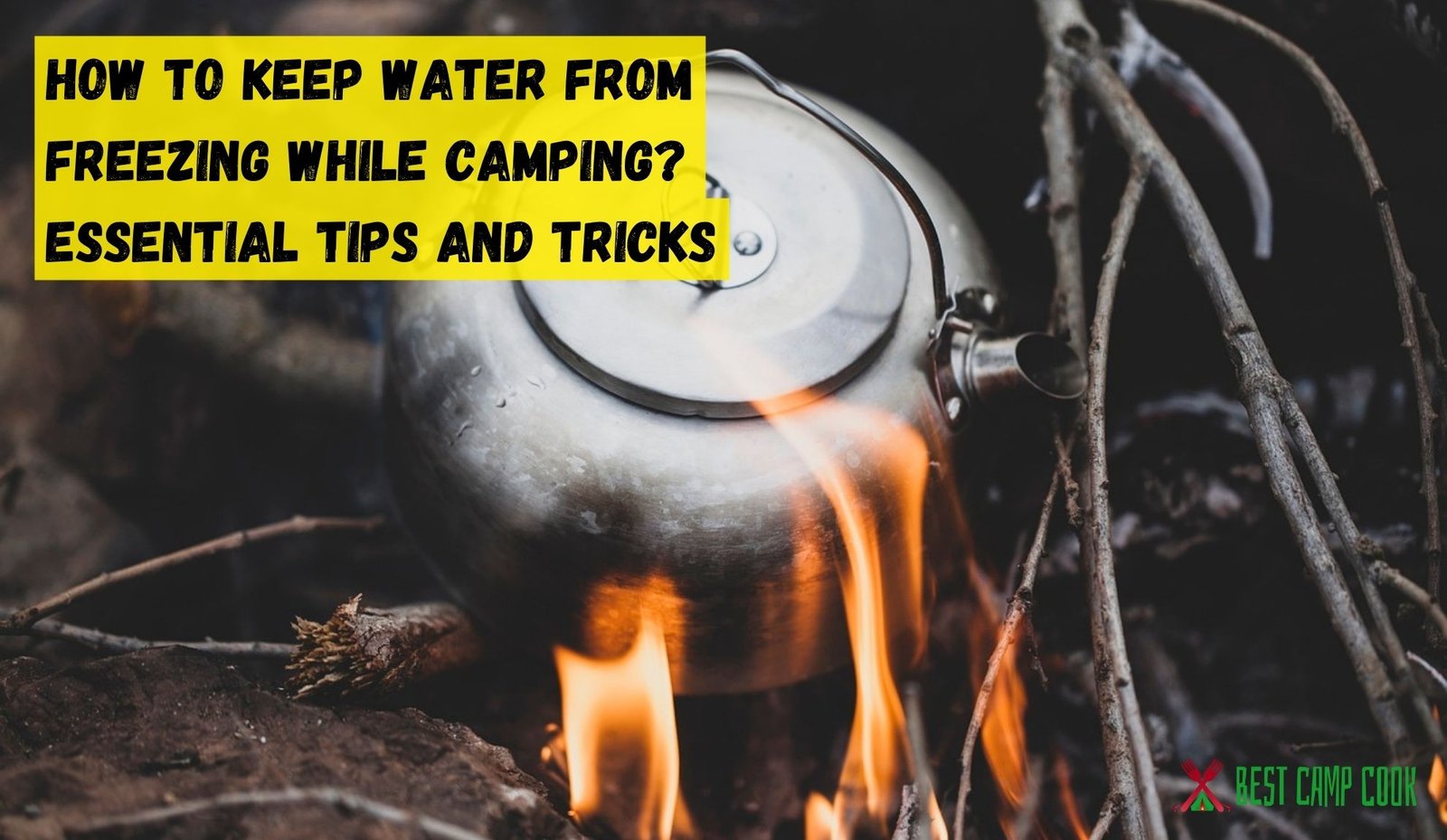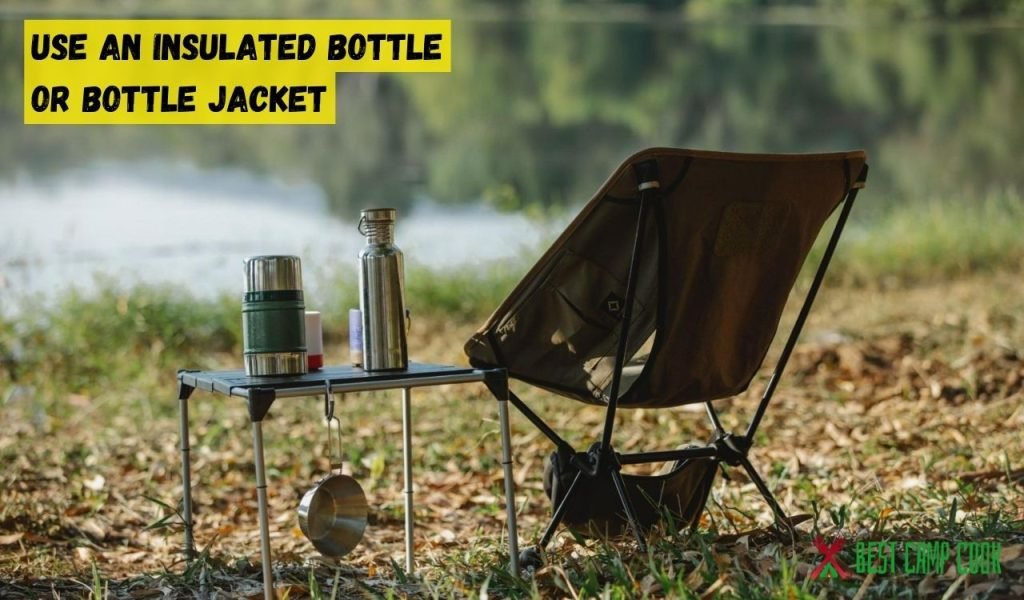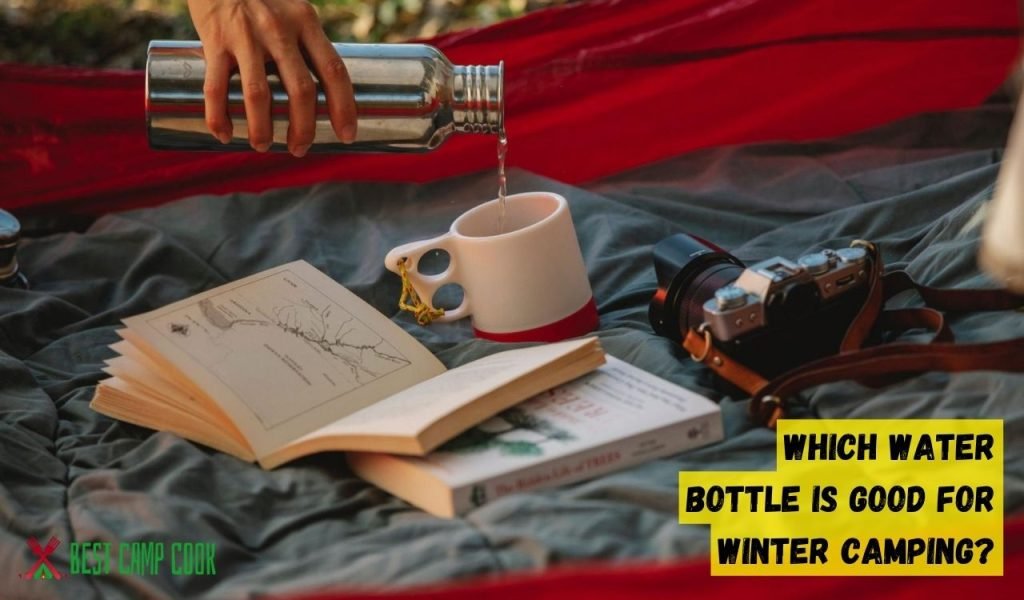Physical Address
304 North Cardinal St.
Dorchester Center, MA 02124
Physical Address
304 North Cardinal St.
Dorchester Center, MA 02124

Planning a winter camping adventure? Concerned about your water freezing in the chilly wilderness? Don’t worry! We have the perfect solution for you. Learn how to keep water from freezing while camping and ensure you stay hydrated throughout your outdoor journey. No more sipping on ice-cold water or dealing with solidified bottles.
In this concise and informative guide, we’ll share practical tips and tricks to keep your water liquid even in freezing temperatures. Discover clever insulation techniques, effective heat sources, and smart storage solutions that will make your camping experience a breeze. Say goodbye to frozen water woes and get ready for a hassle-free hydration experience in the great outdoors!
Main Summary: How to Keep Water from Freezing While Camping
Keep water from freezing during camping by insulating water containers, using insulated sleeves, storing bottles in sleeping bags, and placing them in a thermal cooler at night. Avoid leaving water exposed in cold temperatures to ensure a constant supply of liquid while exploring the great outdoors.
When you’re out camping in the cold, one of the challenges you may face is keeping your water from freezing. After all, staying hydrated is essential, even in chilly temperatures. In this article, we will explore some practical techniques to help you prevent water from freezing while camping. Whether you’re embarking on a winter camping adventure or braving the cold during shoulder seasons, these tips will come in handy.

One of the simplest and most effective ways to keep your water from freezing is by using an insulated bottle or a bottle jacket. These handy accessories provide an extra layer of insulation, helping to maintain the temperature of your water for a longer period. Insulated bottles are specifically designed to retain heat, keeping your liquids warm for extended periods.
They are typically made of double-walled stainless steel with vacuum insulation, which prevents heat transfer and retains the desired temperature. By investing in a high-quality insulated bottle, you can enjoy hot or warm water even in freezing temperatures. If you already have a regular water bottle that you prefer to use, consider getting a bottle jacket.
These jackets are usually made of neoprene or another insulating material and can be easily slipped over your existing bottle. The jacket acts as a thermal barrier, providing insulation and reducing the rate of heat loss. It’s a cost-effective solution that can make a significant difference in preventing water from freezing.
When facing extremely cold temperatures, insulated bottles or bottle jackets may not be enough to keep your water from freezing. In such situations, utilizing hot water techniques can be a game-changer. Here are a few methods to try:
Before heading out on your camping trip, preheat your water to a higher temperature than you normally would. Boil water at home and pour it into your insulated bottle or thermos. By starting with hot water, you give yourself a head start in maintaining a desirable temperature for a more extended period.
Another option is to use a continuous heat source to keep your water from freezing. One common method is to fill a heat-resistant water bottle with hot water and place it in a woolen sock or wrap it with a thick cloth. Position the bottle at the bottom of your sleeping bag or near your body while you sleep. The heat from your body and the insulating layers will work together to prevent the water from freezing overnight.
Heat packs or hand warmers can be a valuable asset in preventing water from freezing. These small, portable heat sources are commonly used for warming hands in cold weather, but they can also serve as a heat boost for your water supply. Activate a hand warmer or place a heat pack alongside your insulated bottle or inside the bottle jacket to provide additional warmth. This method works well, particularly when you’re on the move or engaged in activities that generate body heat.
Another effective strategy to keep your water from freezing is to utilize underground storage solutions. By burying your water containers underground, you can take advantage of the Earth’s natural insulation properties. First, ensure you are using containers that are suitable for underground storage and won’t be damaged by the surrounding soil.
Dig a hole deep enough to accommodate your containers and place them inside, making sure they are tightly sealed to prevent water leakage. Cover the containers with a layer of soil and mark the location for easy retrieval. The soil acts as a natural insulator, shielding your water from extreme temperatures and reducing the risk of freezing.

When camping in cold weather, it’s essential to leverage available heat sources to prevent your water from freezing. One effective method is to use heated rocks. Collect a few rocks and heat them near your campfire or stove until they are hot but not scorching. Carefully place these heated rocks inside your water container to elevate its temperature.
Remember to use rocks that are non-porous and free of moisture to avoid any potential explosions due to trapped water vapor. Another heat source you can utilize is a camping stove. If you have a stove with a simmer function, you can heat water just below boiling point and then transfer it to insulated containers. The residual heat retained in these containers can help maintain the water’s temperature for an extended period.
A clever trick to prevent your water from freezing is to keep it close to your body. By storing your water containers in the interior pocket of your clothing or in a well-insulated backpack, your body heat can provide continuous warmth and inhibit freezing. Ensure the containers are sealed tightly to prevent any leakage.
When hiking or engaging in physical activities, make sure you have easy access to your water containers. Staying hydrated is crucial, and the closer you keep the water to your body, the less likely it is to freeze. Remember to drink regularly to maintain hydration and refill your containers whenever you have the opportunity.
Embarking on a camping trip in cold weather requires careful planning and preparation. Cold temperatures can pose unique challenges, and it’s crucial to be equipped with the right knowledge and gear to ensure a safe and enjoyable experience. In this section, we will provide you with essential tips to help you navigate cold weather adventures and make the most of your winter camping trips.
When venturing into cold weather, proper attire is key to staying warm and comfortable. Layering your clothing is essential to regulate body temperature effectively. Start with a moisture-wicking base layer that will keep sweat away from your skin. Over this, add insulating layers such as fleece or down jackets to provide warmth.
Finally, top it off with a waterproof and windproof outer shell to protect against the elements. Remember to wear insulated, waterproof boots and thick, moisture-wicking socks to keep your feet warm and dry. Don’t forget to protect your extremities by wearing insulated gloves or mittens, a warm hat, and a neck gaiter or scarf.
Maintaining hydration is crucial, even in cold weather. Cold temperatures can cause dehydration as your body works harder to stay warm. Make sure to drink plenty of fluids throughout the day, even if you don’t feel as thirsty as you would in warmer conditions.
To prevent your water from freezing, employ the techniques discussed in the previous section. Insulated water bottles and storing them close to your body can help ensure access to liquid water during your cold weather adventures.
In cold weather, your body burns more calories to generate heat and maintain core temperature. To sustain your energy levels, pack nutritious, high-energy foods for your camping trip. Include items such as nuts, dried fruits, granola bars, and energy gels.
These foods provide a quick source of energy and are easy to consume on the go. Additionally, hot meals and beverages can provide a comforting boost of warmth and nourishment. Consider packing dehydrated meals that can be rehydrated with hot water, as well as instant hot drinks like cocoa or soup.
Weather conditions in cold climates can be unpredictable, with rapid changes in temperature and unexpected storms. Always stay informed about the weather forecast before and during your trip. Pack appropriate camping gear such as extra layers, a waterproof and windproof jacket, and a sturdy tent capable of withstanding harsh conditions.
Carry a reliable map, compass, or GPS device to navigate safely, and inform someone of your travel plans and expected return time. Being prepared and vigilant can help you adapt to changing weather conditions and ensure your safety while enjoying your cold-weather adventures.

Choosing the right water bottle for winter camping is crucial to prevent your water from freezing and ensure easy access to hydration. In this section, we will explore the features and considerations to keep in mind when selecting a water bottle suitable for cold-weather camping.
Insulated water bottles are the preferred choice for winter camping as they are specifically designed to keep liquids hot or cold for extended periods. These bottles feature double-walled construction with a vacuum insulation layer that minimizes heat transfer. Look for bottles with a high insulating capacity, such as those made of stainless steel or with additional copper lining.
Wide-mouth bottles offer several benefits for winter camping, including convenient filling and cleaning of both the bottle and water equipment. Their wide openings make it easier to clean and maintain the equipment used for purifying or filtering water.
Moreover, these bottles can accommodate the use of ice cubes, aiding in keeping the water colder for longer periods and reducing the risk of freezing. It is recommended to choose bottles with leak-proof lids or caps to prevent any potential spillage or water leakage, ensuring a hassle-free camping experience.
Consider the capacity of the water bottle based on your anticipated water needs and the duration of your camping trip. Smaller capacity bottles are lighter and more portable, but they may require more frequent refills. Larger capacity bottles provide ample hydration but can be heavier to carry. Choose a size that strikes a balance between your hydration requirements and portability preferences.
Durability is essential when selecting a water bottle for winter camping. Look for bottles made from sturdy materials that can withstand rough handling and resist impact. Stainless steel, BPA-free plastics, and shatterproof glass are common options known for their durability. Consider factors such as weight, ease of cleaning, and resistance to odors and flavors when evaluating different materials.
In conclusion, keeping water from freezing while camping in cold environments is essential for your comfort and safety. By using insulated containers, effective heating methods, and practical strategies, you can prevent water from turning into ice.
Remember to plan ahead, stay prepared, and prioritize responsible camping practices. With the right knowledge and equipment, you can enjoy a refreshing drink even in the chilliest camping adventures. Stay warm, stay hydrated, and make the most of your cold-weather camping experience!
To prevent water from freezing while camping, use insulated bottles or bottle jackets. You can also employ hot water techniques by preheating water at home or using continuous heat sources like heated rocks or camping stoves.
You can use insulated water bottles or bottle jackets to prevent water from freezing. Additionally, hot water techniques involving preheating water or using heat packs and hand warmers can be effective in maintaining a desirable temperature.
To stop water from freezing, you can use salt. Adding salt to water lowers its freezing point, making it less likely to freeze in cold temperatures. However, excessive use of salt may affect the taste and is not recommended for drinking water.
Yes, a cooler can help in preventing water from freezing. Insulated coolers provide additional protection against freezing temperatures and can maintain the water’s temperature for an extended period.
In cold conditions, you can use alternative methods to prevent water from freezing. Consider using double-walled stainless steel bottles, thermoses, or placing your water bottle in an insulated sleeve. These options help maintain water temperature without specialized insulated bottles.
Yes, salt can keep water from freezing. When salt is added to water, it lowers the freezing point, making it more difficult for the water to freeze, especially in moderately cold temperatures.
Vinegar, like salt, can help lower the freezing point of water and prevent it from freezing. However, using vinegar to prevent freezing in large quantities may not be practical and may impact the taste of the water.
For heating water in freezing conditions, opt for liquid-fuel camp stoves like white gas stoves or multi-fuel stoves. They perform well in cold weather as they maintain a consistent flame and can handle lower temperatures. Be sure to follow safety guidelines when using them.